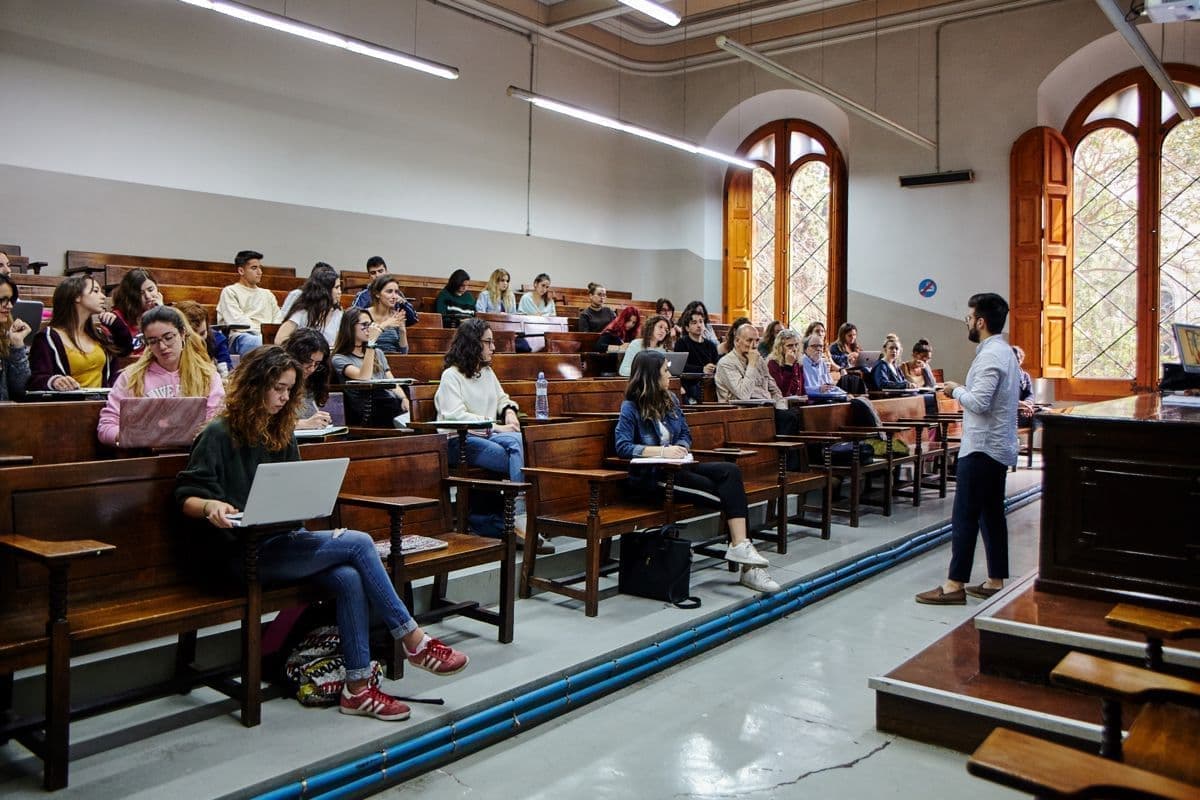The UB's language policy

As such, in order to study at the UB, students must have a reasonable understanding of both official languages (spoken and written). To ensure that this is possible for all learners, the University continues to offer students and teaching staff from outside Catalonia the necessary training in Catalan and Spanish language to acquire a sufficient level of competence in a short space of time. To ensure that all members of the university community are familiar with the institutional language and can attend classes taught in Catalan, Language Services offers a range of face-to-face and online courses as well as access to useful language resources, self-learning materials and a network of conversation groups. These are available to students before their arrival at the UB and for the duration of the academic year.
Teaching at the UB is carried out in both Catalan and Spanish, as well as in other languages, in particular English. The language of instruction for each subject and class group is announced on the website of the corresponding faculty before the start of the academic year. Once announced, the language cannot be changed. This is to safeguard the basic principles of language transparency and linguistic security with regard to students' individual linguistic rights. The information given in the course plan for each subject, including the language of instruction established by the teaching staff, is binding. As such, no changes are permitted during the remainder of the academic year. There are a few courses in which the language of instruction of some or all subjects is defined in advance. In these cases, teaching staff and students will not be permitted to choose their preferred language.
With regard to the institutional language of instruction in university teaching, the right of teaching staff to choose their preferred language must be considered alongside the over-arching language plan for bachelor's degrees and master's degrees and in light of the provisions made in the first paragraph of Article 35 of the Statute of Autonomy of Catalonia, which recognizes the universal individual "right to receive instruction in Catalan". The existence of an over-arching language plan for official studies and the need to safeguard the right to instruction in Catalan mean that in certain cases the teaching staff will be required to use the stipulated language. The right of students to be taught in a given language, as beneficiaries of a public service, has precedence over that of the teaching staff to choose their language of instruction in the delivery of this service. Teaching staff must be able to accredit the required level of competence in each of the two official languages in order to safeguard students' rights with regard to language use. Students may express themselves in whichever of the official languages they prefer. For example, they may write assignments and complete exam papers in either Catalan or Spanish, irrespective of the language used by the teaching staff.
Finally, the UB is committed to supporting the promotion of Occitan (aranés in the Val d'Aran, the Catalan territory in which it is spoken) in the framework of university activities, reflecting its official status in Catalonia.
The University of Barcelona, which is one of the main academic institutions in Catalonia, has a clear international presence in the areas of teaching activity, research, and knowledge and technology transfer. As a result, the UB must adapt to the new contexts produced by academic, student, lecturer and researcher exchanges, and professional exchanges of administrative and service staff.
The UB is committed to incorporating multilingualism into the heart of the institution, in response to the context of internationalization established by the European Higher Education Area (EHEA) and in respect for linguistic and cultural diversity and the broader concept of multilingualism promoted by the Council of Europe's Language Policy Unit.
The UB's strategy of excellence at international scale means that it also promotes knowledge and use of international languages at different levels among members of the university community who need languages for reasons related to international mobility, which could be institutional, academic, professional, employability, linguistic and cultural interest.
